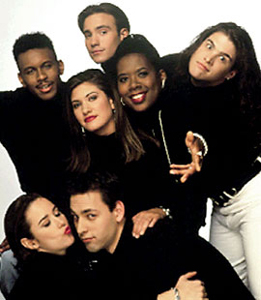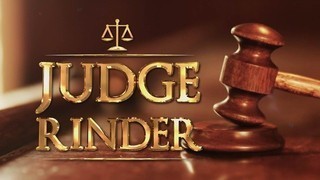Reality television is a genre of television programming that documents purportedly unscripted real-life situations, often starring unfamiliar people rather than professional actors. Reality television emerged as a distinct genre in the early 1990s with shows such as The Real World, then achieved prominence in the early 2000s with the success of the series Survivor, Idol, and Big Brother, all of which became global franchises. Reality television shows tend to be interspersed with "confessionals", short interview segments in which cast members reflect on or provide context for the events being depicted on-screen; this is most commonly seen in American reality television. Competition-based reality shows typically feature the gradual elimination of participants, either by a panel of judges, by the viewership of the show, or by the contestants themselves.

The fourth wall is a performance convention in which an invisible, imaginary wall separates actors from the audience. While the audience can see through this "wall", the convention assumes the actors act as if they cannot. From the 16th century onward, the rise of illusionism in staging practices, which culminated in the realism and naturalism of the theatre of the 19th century, led to the development of the fourth wall concept.

The Real World is an American reality television series produced through MTV and Bunim/Murray Productions that most recently aired on Facebook Watch after airing on MTV from 1992 to 2017. It was originally produced by Mary-Ellis Bunim and Jonathan Murray. First broadcast in 1992, the show was inspired by the 1973 PBS documentary series An American Family. The Real World is the longest-running program in MTV history, one of the longest-running reality series in history, and is credited with launching the modern reality TV genre. Seven to eight young adults are picked to temporarily live in a new city together in one residence while being filmed non-stop.

A laugh track is an audio recording consisting of laughter usually used as a separate soundtrack for comedy productions. The laugh track may contain live audience reactions or artificial laughter made to be inserted into the show, or a combination of the two. The use of canned laughter to "sweeten" the laugh track was pioneered by American sound engineer Charles "Charley" Douglass.

Judge Judy is an American arbitration-based reality court show presided over by former Manhattan Family Court Judge Judith Sheindlin. The show featured Sheindlin as she adjudicated real-life small-claims disputes within a simulated courtroom set. Prior to the proceedings, all involved parties signed arbitration contracts agreeing to Sheindlin's ruling. The show aired in first-run syndication. As it was during its active years in production, it continues to be distributed by CBS Media Ventures in syndication, now in reruns that still draw notably high ratings.

Judge Mathis is an American arbitration-based reality court show presided over by Judge Greg Mathis, a former judge of Michigan's 36th District Court and Black-interests motivational speaker/activist.

The People's Court was an American arbitration-based reality court show, featuring an arbitrator handling small claims disputes in a simulated courtroom set. Within the court show genre, it is the first of all arbitration-based reality-style programs, which has overwhelmingly become the convention of the genre. The original series ran from 1981 to 1993, and the revival ran from 1997 to 2023. Both versions ran in first-run syndication. The show ranks as the longest-running traditional court show and second-longest-running court show in general, having a total of 38 overall seasons as of the 2022–23 television year, behind only niche court show Divorce Court by 2 seasons.
Tonya Cooley is an American actress and television personality. She is a former cast member on MTV's reality television series, The Real World: Chicago, the 11th season of The Real World, which aired in 2002. She was then a regular on the spin-off series, Real World/Road Rules Challenge, participating in eight challenges, with her last being in 2009. She also posed for Playboy as a Cyber Girl of the Week and appeared in an episode of the Cinemax adult series The Erotic Traveler. The stressful environment of the Real World/Road Rules Challenge seasons led to a bout with alcoholism, but in 2016, BuzzFeed News reported she has gained sobriety in the years since leaving the series and that she is now a salon owner. Cooley told the publication, "I am a genuinely happy person now."

The Real World is the first season of MTV's reality television series The Real World, which focuses on a group of diverse strangers living together for several months as cameras follow their lives and interpersonal relationships. It was created by producers Mary-Ellis Bunim and Jonathan Murray.

Divorce Court is an American court show that revolves around settling the disputes of couples going through divorces. The show has had four separate runs, all in first-run syndication. Since the debut of the original series in 1957, it is one of the longest-running syndicated television programs of all time. Divorce Court also holds the record for the longest-running court show of all time, leading the second-place show The People's Court by two years.

Judge Joe Brown is an American arbitration-based reality court show starring former Shelby County, Tennessee criminal court judge Joseph B. Brown. The series premiered on September 14, 1998 and ran through the 2012–13 television season for a total of fifteen seasons. Joe Brown was the second highest paid daytime television personality behind Judge Judy during the time the show was running.
Gamezville is an entertainment video games show that was broadcast on Sky One and ran for two series from 11 August 2003 to 12 September 2004. It was presented by models Jamie Atiko and Darren Malcolm. The non-studio segments of the show were also shown in the United States between 2003 and 2004 on the digital cable channel Nickelodeon GAS as part of a Saturday night gaming block, under the show title Play 2Z. In this version, some segments were redubbed with an American voice.
Eye for an Eye is an American fictitious court show comedy series that was "presided" over by personal injury lawyer Akim Anastopoulo. Anastopoulo is known on the court show by nickname Judge "Extreme Akim". The nickname was meant to characterize the "judge's" severe and eccentric sentences dispensed to guilty parties on the program, known as "paybacks".

In professional wrestling, kayfabe is the portrayal of staged events within the industry as "real" or "true", specifically the portrayal of competition, rivalries, and relationships between participants as being genuine and not staged. The term kayfabe has evolved to also become a code word of sorts for maintaining this "reality" within the direct or indirect presence of the general public.

A studio audience is an audience present for the recording of all or part of a television program or radio program. The primary purpose of the studio audience is to provide applause and/or laughter to the program's soundtrack.

A nod shot, noddy headshot or noddy is a type of camera reaction shot used in recorded news or current affairs interviews. They consist of nods and other similar "listening gestures" made by the interviewer. If only one camera is available at the interview site, then these shots are recorded after the actual interview takes place. The shots are spliced into the interview during the editing process to mask any cuts that have been made. This editing technique is universally "read" by audiences as expressing realism and therefore creates the illusion of a seamless dialogue in the interview.
A court show is a broadcast programming genre comprising legal dramas and reality legal programming. Court shows present content mainly in the form of legal hearings between plaintiffs and defendants, presided over in one of two formats: scripted/improvised with an actor portraying a judge; or, an arbitration-based reality format with the case handled by an adjudicator who was formerly a judge or attorney.
GINX TV Ltd, doing business as GINX.TV, is a United Kingdom–based media group founded in 2007 dedicated to coverage of video games-related content.
The reality television genre, and specific reality television shows, have been subject to significant criticism since the genre first rose to worldwide popularity in the 1990s. Much of the criticism has centered on the use of the word "reality", and such shows' attempt to present themselves as a straightforward recounting of events that have occurred. Critics have argued that reality television shows reflect reality in ways that are deceptive or even fraudulent through misleading editing, coaching participants on what to say and how to behave, generating storylines ahead of time, and staging or re-staging scenes for the cameras.

Judge Rinder is a British arbitration-based reality court show that aired on ITV from 11 August 2014 to 14 October 2020, with repeats continuing until 24 September 2021. The show depicts Robert Rinder as an arbitrator overseeing civil cases. Rinder began his career in criminal law in 2003. He is a barrister and wears his barrister robes while on the show, but does not wear the wig as is customary in the judiciary. Rinder is a practising criminal barrister at 2 Hare Court Chambers in London and this is made clear on the show. As with other related court shows that inspired it, such as Judge Judy, Judge Mathis and The People's Court, any awards handed down by Rinder are paid by the production company rather than the loser.












